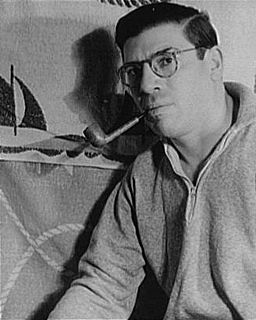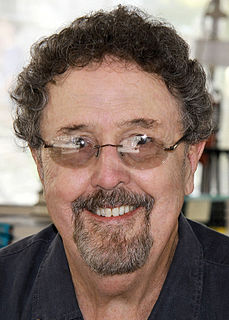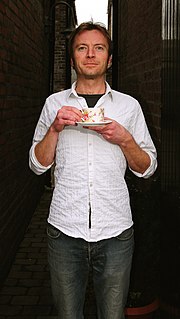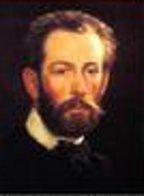A Quote by Katherine Paterson
Reading asks that you bring your whole life experience and your ability to decode the written word and your creative imagination to the page and be a co-author with the writer, because the story is just squiggles on the page unless you have a reader.
Related Quotes
It is only when you open your veins and bleed onto the page a little that you establish contact with your reader. If you do not believe in the characters or the story you are doing at that moment with all your mind, strength, and will, if you don't feel joy and excitement while writing it, then you're wasting good white paper, even if it sells, because there are other ways in which a writer can bring in the rent money besides writing bad or phony stories.
The enemy is not the badly written page; it is the empty page the great advantage of a badly written page is that it can be rewritten. It can be improved. A blank page is zero. In fact, it’s worse than zero, because it represents territory you’re afraid, unwilling, or too lazy to explore. Avoid exploring this territory long enough, and you’ll abandon your book.
Sometimes you just have to turn the page to realize there's more to your book of life than the page you're stuck on. Stop being afraid to move on. Close this chapter of hurt, and never re-read it. It's time to get what your life deserves, and move on from the things that don't deserve you. Don't try to fix what's been broken in your past, let your future create something better.
When you wrote it didn't matter if hysteria sometimes came up in your face and voice (unless, of course, you let it find its way into your "literary voice") because writing was done in merciful privacy and silence. Even if you were partly out of your mind it might turn out to be all right: you could try for control even harder than Blanche Dubois was said to have tried, and with luck you could still bring off a sense of order and sanity on the page for the reader. Reading, after all, was a thing done in privacy and silence too.
I think the benefit of being a writer is that I'm looking for the subtext on the page, because all good writing has subtext. And as a writer, you look at the big scope of things, the big story, rather than just your individual story line, because I think it's important to know what you're in and how you fit into it.
I have a word for you. I know your whole life story. I know every skeleton in your closet. I know every moment of sin, shame, dishonesty and degraded love that has darkened your past. Right now I know your shallow faith, your feeble prayer life, your inconsistent discipleship. And my word is this: I dare you to trust that I love you just as you are, and not as you should be. Because you’re never going to be as you should be.
My readers have to work with me to create the experience. They have to bring their imaginations to the story. No one sees a book in the same way, no one sees the characters the same way. As a reader you imagine them in your own mind. So, together, as author and reader, we have both created the story.
They put the thing down your throat so you don't swallow your tongue, and they put electrodes on your head. That's what was recommended in Rockland State Hospital to discourage homosexual feelings. The effect is that you lose your memory and become a vegetable. You can't read a book because you get to page 17 and have to go right back to page one again.
Your life is like a book. The title page is your name, the preface your introductions to the world. The pages are a daily record of your efforts, trials, pleasures, discouragements, and achievements. Day by day your thoughts and acts are being inscribed in your book of life. Hour by hour, the record is being made that must stand for all time. Once the word 'finish' must be written, let it then be said of your book that it is a record of noble purpose, generous service, and work well-done.
One of the things I love about the Bible is that it's page-by-page proof that God is not just a "broad strokes" kind of creator; God is in the details. So much so that we're told nothing is hidden from him. He sees everything; he's the beginning and the end. There's no greater authority on your life than the one who gave you your life.


































